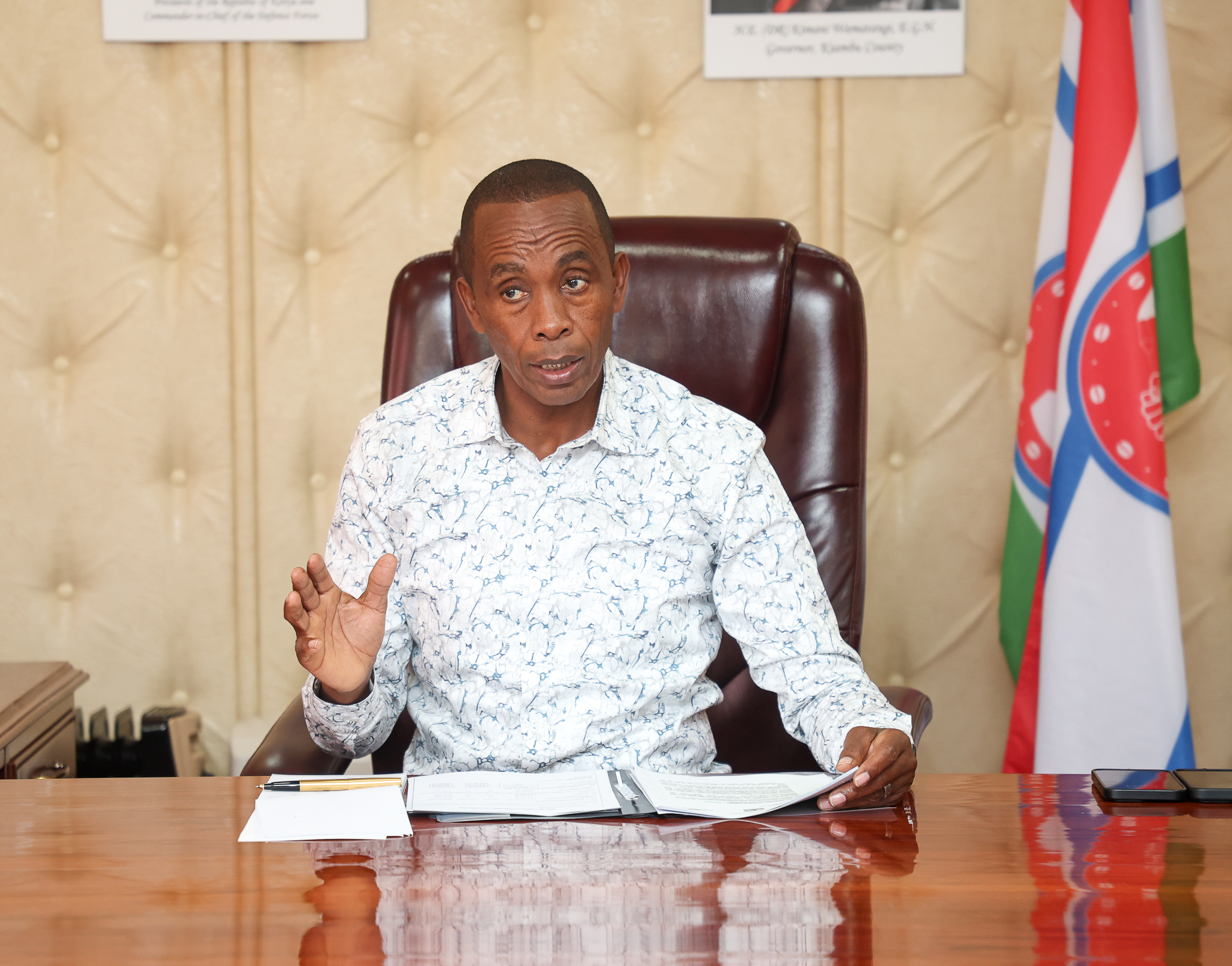

The High Court has yet again extended conservatory orders
barring the Director of Public Prosecutions and the Ethics and Anti-Corruption
Commission from arresting or prosecuting Kiambu Governor Kimani Wamatangi
pending further directions.
Justice Chacha Mwita of the Constitutional and Human Rights
Division of the High Court in Nairobi extended the orders on Wednesday to
December 10, when he will issue further directions on the petition.
The extension followed a request by the Director of Public
Prosecutions, through counsel Henry Arochi, for more time to file his submissions
on the matter.
Wamatangi had moved to court for orders to stop an intended
prosecution, saying he was apprehensive that the EACC would arrest and charge
him with corruption following a probe on links to firms suspected of graft.
His lawyer, Stephen Ligunya, told the court he had filed and
served his submissions as had been earlier directed.
EACC, through its counsel Ms. Murugi, said she had been
served with the submissions. She, however, sought more time to file her
responses.
“I am sorry to both the court and my colleagues for not
having filed responses. I have been unwell and only resumed work this week. I
ask for two days to file my responses,” Murugi said.
Justice Mwita gave both the EACC and the DPP 14 days to file
their responses ahead of the December 10 date for highlighting of submissions.
The EACC is investigating Wamatangi over graft allegations
stemming from links to companies that are the subject of the contested
investigations.
Arochi claimed that Wamatangi had an interest in those
firms, arguing that since interim orders had already been granted in another
case, the present petition risked duplicating issues and producing conflicting
rulings.
"If these cases proceed concurrently, this is likely to
embarrass the court as decisions may be made differently," he said.
However, Ligunya dismissed that assertion, stating that his
client was neither a shareholder in the companies under probe nor a party to
the earlier petition.
He argued that the governor had been unfairly linked to the
firms.
Justice Mwita pressed Arochi on whether the parties in the
two cases were the same.
Arochi admitted they were not identical but maintained that
the directors involved were the same and that the issues raised were similar.
He noted that the earlier petition had been filed before the
present one.
Separately, the EACC had filed an application on August 8
seeking to transfer the petitions to the Anti-Corruption and Economic Crimes
Division.
However, Justice Mwita observed that consolidation could
only be considered if both matters were properly before the same court.
He cautioned that one judge could approve a transfer while
another declined, creating procedural complications. He urged parties to take
steps that would allow the case to progress rather than stall.
















